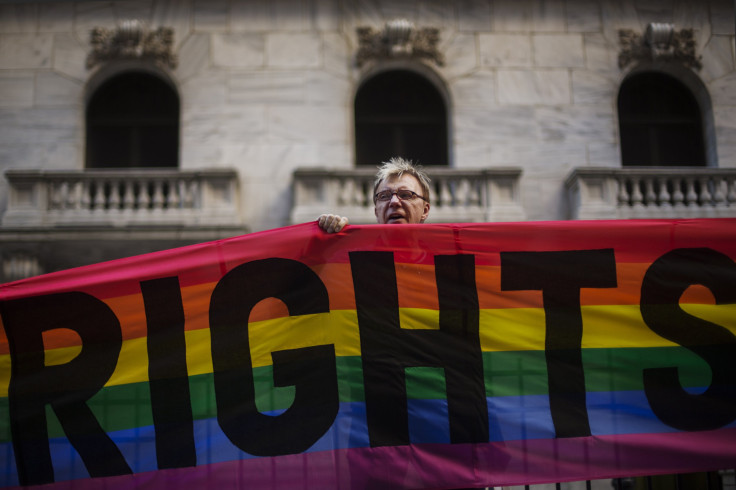Equal Employment Opportunity Commission Files First Lawsuits Against Employers For Discrimination Over Sexual Orientation

The federal agency that enforces civil rights in the workplace has filed its first lawsuits against companies for allegedly discriminating against gay and lesbian workers.
Under existing federal law, gay and lesbian people are not explicitly protected from discrimination or harassment on the job. But last year, the Equal Employment Opportunity Commission ruled that workplace discrimination on the basis of sexual orientation is itself a form of sex discrimination, which is specifically barred under the landmark Civil Rights Act of 1964. The agency had heard and investigated complaints to this effect, but not yet filed a lawsuit on the matter — until now.
In the first challenge, the agency alleges Pennsylvania-based Scott Medical Health Center discriminated against a gay employee. And in a separate lawsuit, it accuses Maryland pallet manufacturer IFCO Systems of discriminating against a lesbian worker.
“With the filing of these two suits, EEOC is continuing to solidify its commitment to ensuring that individuals are not discriminated against in workplaces because of their sexual orientation,” EEOC General Counsel David Lopez said in a statement.
In the Scott Medical Health Center case, the EEOC says a gay male employee suffered repeated harassment over his sexual orientation, including his manager calling him anti-gay epithets. After the worker complained, he decided to resign.
In the other case, the agency says a lesbian employee suffered discriminatory abuse from a supervisor. The boss allegedly made comments like “I want to turn you back into a woman” and “You would look good in a dress.” Shortly after the worker complained to management, she was fired — in retaliation, according to the EEOC.
In the absence of explicit federal protections, 20 states and the District of Columbia have passed laws that protect workers from discrimination on the basis of sexual orientation and gender identity. Proposals in Congress and other state legislatures to create similar regulations have stalled in recent years.
The lawsuits announced Tuesday could bolster the Obama administration’s argument that existing federal law protects all LGBT workers from discrimination. Some federal courts have accepted the EEOC’s reasoning so far, but no federal appeals courts have ruled on the matter. It is therefore likely that any ruling in favor of the EEOC would be appealed. Observers expect the question of whether existing law prohibits employment discrimination on the basis of sexual orientation to eventually reach the Supreme Court.
© Copyright IBTimes 2024. All rights reserved.












